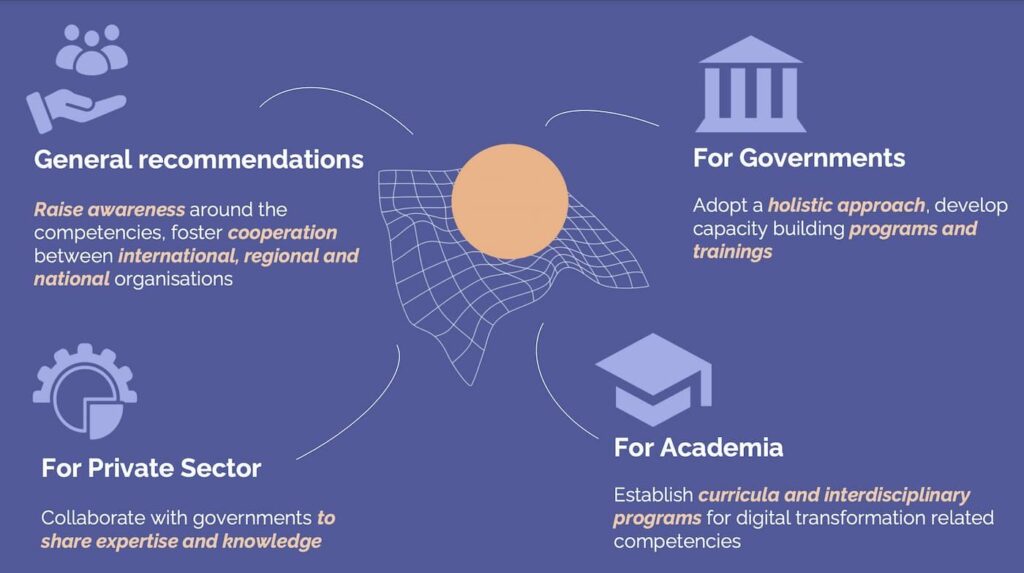A recent report by the UN’s Broadband Commission Working Group on AI Capacity Building has identified the key challenges that prevent public sector officials, academic researchers, and private stakeholders from effectively using digital tools, developing and implementing digital transformation projects, and addressing complex governance challenges.
Launched last September, the research found that 47% out of 198 countries currently do not have a strategy to improve digital skills, that 80% out of 32 African countries surveyed requested policy advice for the development of aspects of AI policy concerning education, sciences, culture and communication and information, and that 68% of the 32 African countries needed initiatives for knowledge exchange concerning AI governance and 78% requested support training for government officials.
The lack of IT infrastructure investment, lack of available, accessible datasets and lack of mature data organisation, data management and data governance practices are actually obstructing national digital transformation efforts. All the above impedes efficient digital transformation and calls for further investment in countries’ development in the public sector.
Based on these and more findings, the working group developed nine recommendations targeted to civil servants working on the digital transformation framework.

General recommendations
1 • Raise awareness of artificial intelligence and digital transformation competencies
These competencies are foundational for successfully implementing digital transformation in government and creating an enabling environment for digital transformation in society through improved digital governance.
2 • Contextualize, localize, and adapt AI and digital transformation competencies
Competencies must be contextualised, localised and adapted for their specific context, based on the analysis of capacity building needs at individual, team, department, and government levels. The proficiency levels embedded in all competencies of this competency framework can guide this contextualisation process.
3 • Share learning resources for AI and digital transformation capacity building
Develop open learning hubs and multi-pathway curricula tailored to the learning needs of civil servants. Facilitate their training through networks of training institutions and through various modalities of learning.
4 • Monitor the impact of AI and digital transformation projects
Monitor the impact of AI and digital transformation projects with qualitative and quantitative tools and in collaboration with research centres. Identify and share openly best practices.
5 • Facilitate knowledge exchange and mutual learning through multi-lateral cooperation.
Create coalitions and platforms for exchanging good practices on AI and digital transformation-related capacity building at the national, regional, and international levels.
Recommendations for Government
6 • Take a holistic approach when using the framework
Begin by developing a national AI and digital transformation strategy, then develop digital action plans on strengthening specific competencies.
7 • Develop digital transformation-related capacity-building programs and trainings, as part of national digital transformation initiatives.
Recommendation for Academia
8 • Leverage the framework to establish curricula and interdisciplinary programs for developing AI and digital transformation – related competencies.
Recommendations for Private Sector
9 • Collaborate with governments to implement capacity-building initiatives by contributing expertise and knowledge based on experience with digital transformation.
The report was written collaboratively, drawing on insights and contributions from the many participants of the Broadband Commission for Sustainable Development’s Working Group on AI Capacity Building. The Open Knowledge Foundation is a partner organisation, along with Polylat, ILDA, and Paradigm Initiative.








